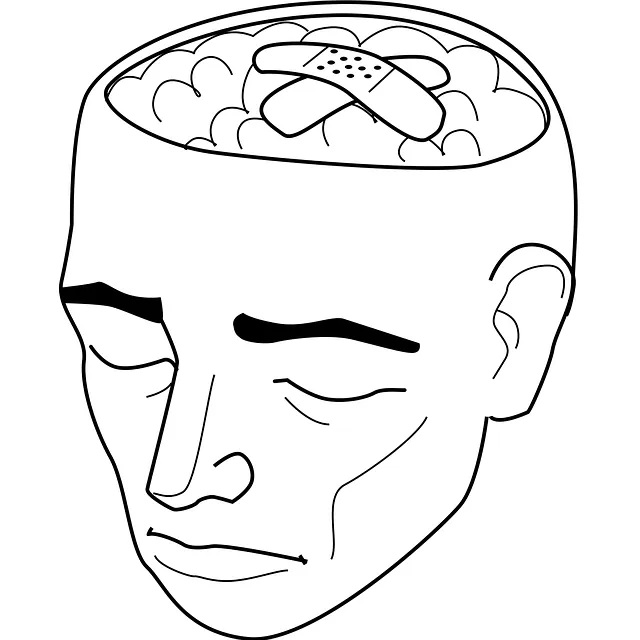Kaiser Permanente in Castle Rock employs a multifaceted evaluation approach to enhance and optimize its mental wellness programs, going beyond outcomes measurement. This includes structured clinical interviews, self-report questionnaires, and observational measures to assess patient mental health journeys. Their Mental Health Education Programs Design incorporates cognitive-behavioral techniques for conditions like anxiety, tailored to individual needs. Continuous improvement is fostered through regular reviews, client feedback integration, and adaptation to emerging research and best practices. Risk Management Planning and policy analysis ensure alignment with current trends, contributing to long-term success in Castle Rock's mental health services.
At Castle Rock, evaluating mental wellness programs is paramount to ensure effectiveness and foster continuous improvement. This article explores Kaiser’s innovative assessment methods, highlighting their tools and techniques in measuring mental health service delivery. We delve into the significance of feedback as a key indicator of success and present strategies for long-term sustainability. Understanding these approaches, inspired by Kaiser’s practices, can enhance mental wellness program evaluations across various communities, including those with limited access to resources.
- Understanding Mental Wellness Program Evaluation
- Assessment Tools and Techniques Used by Kaiser
- The Role of Feedback in Measuring Effectiveness
- Continuous Improvement: Strategies for Long-term Success
Understanding Mental Wellness Program Evaluation

Mental wellness program evaluation is a crucial process that goes beyond simply measuring outcomes. It involves a multifaceted approach to understanding and enhancing the effectiveness of mental health services, such as those available at Kaiser in Castle Rock. This includes assessing the implementation of evidence-based practices, like communication strategies designed to foster patient engagement and self-care practices aimed at supporting both clients’ and professionals’ well-being.
By employing comprehensive evaluation methods, mental health professionals can identify strengths and weaknesses within programs, pinpoint areas needing improvement, and make data-driven decisions. This proactive approach not only enhances service quality but also contributes to the overall risk assessment and management for those involved in providing mental health care.
Assessment Tools and Techniques Used by Kaiser

Kaiser Permanente, a renowned healthcare organization, offers comprehensive mental wellness programs, and their evaluation methods are equally robust. They utilize a combination of assessment tools to gauge the effectiveness of their services, particularly in Castle Rock, where they have been praised for their mental health initiatives. These tools include structured clinical interviews, self-report questionnaires, and observational measures, all designed to capture various aspects of an individual’s mental health journey.
The Mental Health Education Programs Design incorporates Mind Over Matter principles, focusing on cognitive-behavioral techniques to manage conditions like anxiety. By employing these diverse evaluation methods, Kaiser aims to tailor interventions and ensure the success of their programs in providing Anxiety Relief for their diverse patient population.
The Role of Feedback in Measuring Effectiveness

Effective mental wellness programs rely heavily on feedback as a core component to measure their overall success and impact. Gathering insights from participants is invaluable in understanding the program’s effectiveness, identifying areas for improvement, and ensuring it aligns with the intended goals. Feedback provides a direct line into the user experience, allowing for continuous refinement and adaptation.
For instance, evaluating Castle Rock’s mental health services through Kaiser’s lens could involve assessing participant satisfaction, the perceived benefits of the programs, and their ability to enhance coping skills and prevent burnout among mental health professionals. This feedback is instrumental in shaping these services, ensuring they remain relevant and impactful. Incorporating risk assessment tools can also help identify potential issues early on, promoting timely interventions and fostering a healthier work environment.
Continuous Improvement: Strategies for Long-term Success

Castle Rock’s Kaiser Permanente offers a robust framework for continuous improvement in mental wellness programs, ensuring long-term success. This strategy involves regularly reviewing and adapting services based on client feedback, emerging research, and best practices within the field of mental health. By fostering a culture of ongoing learning and refinement, Kaiser Permanente can address evolving community needs and maintain high-quality care.
Integrating Risk Management Planning for Mental Health Professionals is pivotal in this process. Effective risk assessment and mitigation strategies not only protect service providers but also enhance client outcomes by ensuring safe and evidence-based practices. Moreover, mental health policy analysis and advocacy play a significant role in shaping the program’s direction, aligning it with current trends and societal demands, such as promoting Emotional Healing Processes for diverse populations.
Mental wellness program evaluation is a multifaceted process, as demonstrated by Kaiser’s comprehensive approach. By utilizing diverse assessment tools and prioritizing continuous improvement, organizations like Kaiser can ensure their mental health services in Castle Rock remain effective and tailored to the evolving needs of their community. Integrating feedback mechanisms strengthens this process, fostering a dynamic environment that drives long-term success. This strategic evaluation methodology is key to promoting robust mental wellness initiatives.






